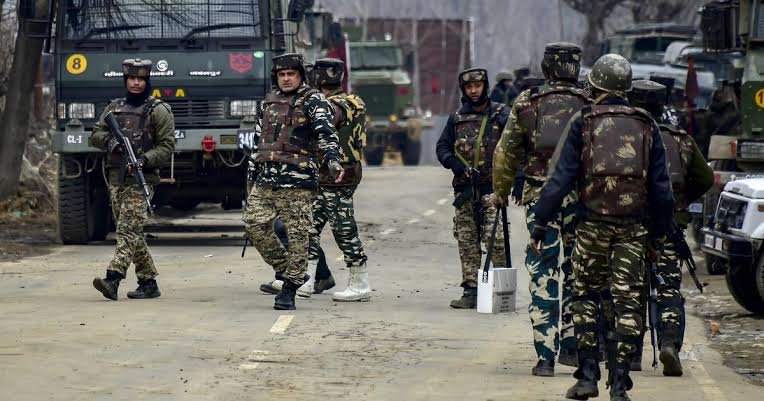Pakistan’s longstanding support for terror groups continues to pose a significant threat to regional security. In recent months, Indian security forces have intensified their efforts to disrupt this nexus, focusing on two key areas: infiltration routes and terror support networks.
Infiltration: Sealing the Borders
The mountainous terrain along the Line of Control (LoC) separating India and Pakistan has long been exploited by terrorists for infiltration. Security forces have adopted a multi-pronged approach to address this challenge:
- Strengthening Border Infrastructure: Construction of advanced fencing systems equipped with thermal imaging and night vision cameras is underway along the LoC. These advancements provide real-time surveillance and make unauthorized crossings more difficult.
- Enhanced Patrolling: Increased troop deployment and more frequent patrolling, both on foot and with mechanized vehicles, aim to detect and intercept infiltration attempts.
- Technological Solutions: Drone surveillance and the use of advanced sensors help keep a watchful eye on remote areas and potential infiltration routes.
- Intelligence Gathering: Human intelligence networks and technical resources are used to gather information on planned infiltration attempts and the movement of terror groups.
Disrupting the Support System: Choking the Oxygen Supply
Terrorist activities rely heavily on a network of local collaborators who provide logistical support, safe havens, and recruitment grounds. Security forces are actively targeting these support networks through:
- Counter-Terrorism Operations: Raids and targeted operations are conducted based on intelligence to dismantle terror modules, arrest key operatives, and seize weapons and explosives.
- Public Outreach: Community engagement programs aim to build trust, encourage information sharing, and isolate terror groups from potential recruits.
- Countering Propaganda: Proactive measures are taken to counter extremist narratives spread online and through other channels.
- Financial Disruption: Efforts are underway to identify and choke off funding sources for terror groups, including hawala networks and other illegal channels.
Challenges and the Path Forward
Despite these efforts, several challenges remain:
- Porous Borders: The vastness of the border with Pakistan makes complete sealing a difficult task.
- Proxy Groups: Pakistan’s use of proxy groups like Lashkar-e-Taiba (LeT) and Jaish-e-Mohammed (JeM) adds complexity to the situation.
- Radicalization: Addressing the root causes of radicalization that make individuals susceptible to extremist ideology is crucial in the long run.
Security forces are constantly adapting their strategies to address these challenges. Collaboration with international partners in intelligence sharing and counter-terrorism efforts is also critical.
Regional Implications: A Shared Threat
Pakistan’s support for terrorism not only threatens India but also destabilizes the entire region. Countries like Afghanistan and Bangladesh have also faced the brunt of Pakistan-backed terror activities. Enhanced regional cooperation in intelligence sharing, border management, and countering terror financing is vital to effectively dismantle this network.
The Way Forward: A Multi-Pronged Approach
Countering Pakistan-linked terrorism requires a sustained, multi-pronged approach:
- Maintaining Vigilance: Security forces must remain vigilant and constantly adapt their tactics to counter evolving threats.
- Community Engagement: Local communities must be actively involved in identifying and isolating extremist elements.
- Addressing Radicalization: Education and social development programs can address the root causes of radicalization and prevent future recruitment.
- International Cooperation: Collaboration with regional and global partners is essential for effective intelligence sharing, financial disruption, and dismantling terrorist networks.
Conclusion
India’s efforts to combat Pakistan-backed terrorism are commendable. By focusing on disrupting infiltration routes and dismantling support networks, security forces are making significant strides in weakening this nexus. Continued vigilance, community engagement, and international cooperation are essential for long-term success. Only through these combined efforts can the region achieve lasting peace and stability.

